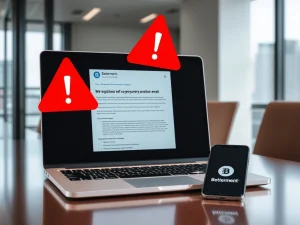Singapore’s Strategic Edge: Pioneering Crypto and AI Innovation

As global debates intensify over the future of digital assets and artificial intelligence, a clear divergence in approach has emerged. While many Western nations deliberate, Singapore actively pioneers, establishing itself as a crucial hub for both **Singapore crypto regulation** and **AI innovation Singapore**. This proactive stance creates a dynamic environment, contrasting sharply with the more cautious, regulation-first strategies seen elsewhere.
Western AI Regulation Faces Hurdles
The West’s approach to emerging technologies often prioritizes comprehensive regulation before widespread deployment. This strategy, however, frequently results in significant delays and compliance challenges. For example, the European Union’s AI Act, despite years of discussion, now presents companies with substantial hurdles. Its phased rollout timeline complicates adoption, especially in critical sectors like healthcare and finance where clarity is essential.
Across the Atlantic, the United States faces similar issues. In 2024 alone, over 40 states introduced various AI bills. Without a cohesive federal framework, these conflicting requirements create a fragmented and chaotic landscape. What one state permits, another may prohibit. This systemic problem highlights a fundamental miscalculation: the belief that every theoretical risk must be eliminated before real-world innovation can proceed. Consequently, every month spent debating edge cases is a month Singapore spends deploying advanced AI systems, attracting top talent, and building irreversible strategic advantages.
Singapore’s Revolutionary Regulatory Sandbox
In stark contrast, Singapore has embraced a ‘sandbox-first’ model. This innovative approach treats new technologies not as threats, but as opportunities for careful, controlled testing. Instead of regulating first, Singapore focuses on real-world deployment under strict regulatory containment. These **regulatory sandbox** environments enable controlled testing with several layers of protection. Mandatory emergency shutdown protocols, robust fail-safes, and continuous compliance monitoring ensure safety and accountability.
When the Monetary Authority of Singapore (MAS) observed crypto firms seeking alternatives to Western uncertainty in 2024, it significantly increased its licensing approvals year-over-year. This commitment underscores Singapore’s dedication to fostering a legitimate and robust digital asset ecosystem. The **regulatory sandbox** model exemplifies agile, evidence-led governance, learning from practical experience rather than purely theoretical concerns.
Refining Crypto Licensing: Targeted Enforcement
Singapore’s regulatory evolution also includes sophisticated enforcement actions. In June 2025, MAS implemented a decisive deadline. Locally incorporated crypto firms serving only overseas markets were required to obtain proper licensing or cease operations. This was not a broad crackdown. Instead, it represented surgical enforcement specifically targeting regulatory arbitrage.
This measure addressed firms incorporated in Singapore solely to leverage its reputation. These entities often served foreign customers without proper oversight. Companies faced a clear choice: commit to Singapore’s established regulatory framework or exit the market. Many opted to relocate rather than comply with proper oversight. This revealed how some used Singapore merely as regulatory window dressing. This enforcement action demonstrates significant regulatory maturity in action. Singapore first built legitimate infrastructure, authorizing 19 major cryptocurrency service providers. Then, it systematically eliminated bad actors exploiting regulatory gaps. The result is a higher-quality crypto ecosystem. It features clear rules and serious players, while competitors continue to face ongoing regulatory chaos. This disciplined flexibility generates measurable returns, further cementing Singapore’s position in the global digital economy.
The Compounding Advantage: AI Innovation Singapore Leads
Singapore’s disciplined flexibility is now yielding significant benefits. The nation has become Southeast Asia’s dominant AI hub. It attracts global venture capital, world-class researchers, and innovative AI startups. This success stems from favorable visa policies, robust research funding, and strong industry partnerships. The **AI innovation Singapore** ecosystem thrives on this agile, evidence-led governance. Each deployment within the sandbox caps user exposure, mandates real-time data sharing, and includes instant fallback systems. This is not deregulation. It is a sophisticated approach that learns from reality. Singapore’s sandbox strategy is more than a regulatory experiment; it represents a compounding national advantage. It transforms agility into a long-term competitive edge, benefiting the entire region.
The Catch-Up Illusion and Economic Imperative
Western awareness of these challenges is growing, but implementation remains sluggish. As of mid-2025, the UK’s sandbox program remains in its early stages. Only a few cohorts from the Financial Conduct Authority have completed their testing. In the United States, federal rulemaking often takes multiple years. This process includes lengthy public comment and interagency review phases. Meanwhile, state-level AI laws continue to proliferate faster than any cohesive federal approach can manage. This delay is far from neutral; it is economically destructive.
By 2030, AI could potentially contribute an estimated $23 trillion to global GDP. However, the lion’s share of this value will not be distributed evenly. Countries with agile governance frameworks systematically position themselves to capture the majority of these benefits. This leaves slower movers with significantly fewer economic opportunities. The message is clear: **Singapore crypto regulation** and AI strategies are setting a new global standard. Western economies have months, not years, to abandon their policy paralysis and embrace evidence-based governance.
The Clock’s Final Tick
Singapore is actively cleaning house. It cracks down on regulatory arbitrage while upholding strong frameworks for serious operators. Simultaneously, it deploys real-time AI across critical infrastructure. The June 2025 crypto enforcement was not a retreat. Instead, it represented ecosystem refinement. Many Western regulators lack the sophistication to execute such targeted actions. In this accelerating race, regulatory velocity and precision are both forms of competitive advantage. The global AI race is intensifying. Like financial centers, AI hubs will soon emerge. These centers will be built around strong policy, top talent, crucial access, and competitive stakeholders. Singapore is undeniably leading this charge.









